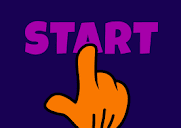Task initiation has to do with knowing where to begin and how to begin, and is an important executive function skill that can be a tough one for many students to master. Part of the reason for this difficulty is that there can be many underlying reasons why a student has trouble getting started. I saw a list that had nearly 20 reasons for poor task initiation on it!
You might think that all issues of this type come down to
procrastination, but I break task initiation problems into three additional
main categories: Prioritizing, planning, and perfectionism.
First, let’s talk about prioritizing. This can be as simple
as “What needs to be done today?” followed by “What has to be completed first
before I can complete something else?” A great way to prioritize tasks is to make
a list of everything you need to do – and I do mean EVERYYHING – for, say, the
next week. Next, think about when those things need to be done, how important
they are, whether another project or assignment relies on something else being
done first, and label each item on your list with an “A,” “B,” or “C,” with “A”
being the highest priority items. Then rewrite your list with all of the “A”
items together, etc. See if this helps you organize your days and week to
understand what you must do first. Having a solid starting point can be the first
step in initiating tasks. (If you feel like your week starts on the evening
after your ATYP class, this is an excellent time to do this.)
Some students have problems with planning. Even if they know
what they need to do and what the deadlines are, they just can’t see a way or a
when to getting it done – so they don’t start. What are some ways you can work
around this? First, you can look at your list and think about the time you have
available in your week and try to fit the pieces of your assignments into time
slots you have available. This can be fun, because it feels like solving a
puzzle, but also helps you knock out small chunks of homework in time you didn’t
know you had. Sitting in the dentist office waiting for your brother? Read one
chapter in your math textbook. Have 20 minutes between getting home and sitting
down to dinner? Type up your vocabulary assignment. It might not seem like you're accomplishing much, but you are starting and that's what counts.
If you have a large assignment, break it into smaller
pieces. For a project that feels overwhelming, doing just one, two, or three of
the smaller chunks is a good way to get over the “getting started” hurdle and moving
toward the larger pieces. Finally, think about what makes you more likely to
start – getting the assignment you like least done and out of the way, or
starting with something you enjoy that eases you into the parts you don’t love
so much? There's no right or wrong answer for that, just choose whichever works for you.
Perfectionism is a tough one, and particularly relevant for gifted students. Some students really don’t
like to begin a paper or an assignment until they think they have a perfect
understanding of the assignment, or a perfect thesis statement, or a perfect
plan. Since there’s no such thing as perfect, this can be a huge hurdle to
getting started. So what to do? Think about starting in the middle of a paper
if the beginning is the sticking point. Tackle assignments in pencil so if you
have to erase it doesn’t matter. Remember, there is a difference between healthy
perfectionism (I want to do my best and turn out a high-quality product) and unhealthy
perfectionism (I am so caught up in getting it right that I am frozen). If you feel
like you’re dealing with unhealthy perfectionism try focusing on “good enough”.
If you can understand it well enough, if the topic sentence is okay, that’s
when you begin.
Finally, what about just good old procrastination? Those are
the “I don’t want to do it,” “I’d rather play video games,” “That will only
take me 15 minutes on Saturday (even though it will take you an hour and a half
on Sunday night at 10)” reasons for not starting. Is that what makes it hard to
start? You can:
- · Set a timer for when you will begin
- · Plan out rewards for when you have completed sections of your list
- · Make sure to take short breaks to keep yourself fresh
- · Ask a trusted adult to help you get started if you continue to struggle. Maybe they can help you analyze the problem and see where you want to focus your efforts?
Yes, getting started can be hard but usually it’s more than
half the battle. So jump off and join in!
Until next time,
Ms. Nan


No comments:
Post a Comment